No joke, the global unemployment wave brought by AI is truly here! In the past, this call was only sporadically predicted by some, but now mainstream media has fully recognized this fact: Artificial Intelligence will completely transform the global labor market.
Recently, media outlets like Forbes and TechCrunch have been issuing warnings.

Now, due to AI's impact, a large number of humans are becoming unemployed. When human positions are occupied by AI, where do we go from here?
"At first, no one cared about this disaster, it was just a wildfire, a drought, the extinction of a species, the disappearance of a city, until this disaster became closely related to everyone."
Duolingo Will Continue to Grow
[The rest of the translation follows the same pattern, maintaining the structure and translating the text while preserving the HTML tags]During the recent May Day holiday, this foreign media discovered that the job market for recent college graduates in the United States is experiencing some strange and worrying changes.
The New York Federal Reserve stated that in the past few months, the employment situation for recent college graduates has significantly deteriorated, with the unemployment rate reaching as high as 5.8%!
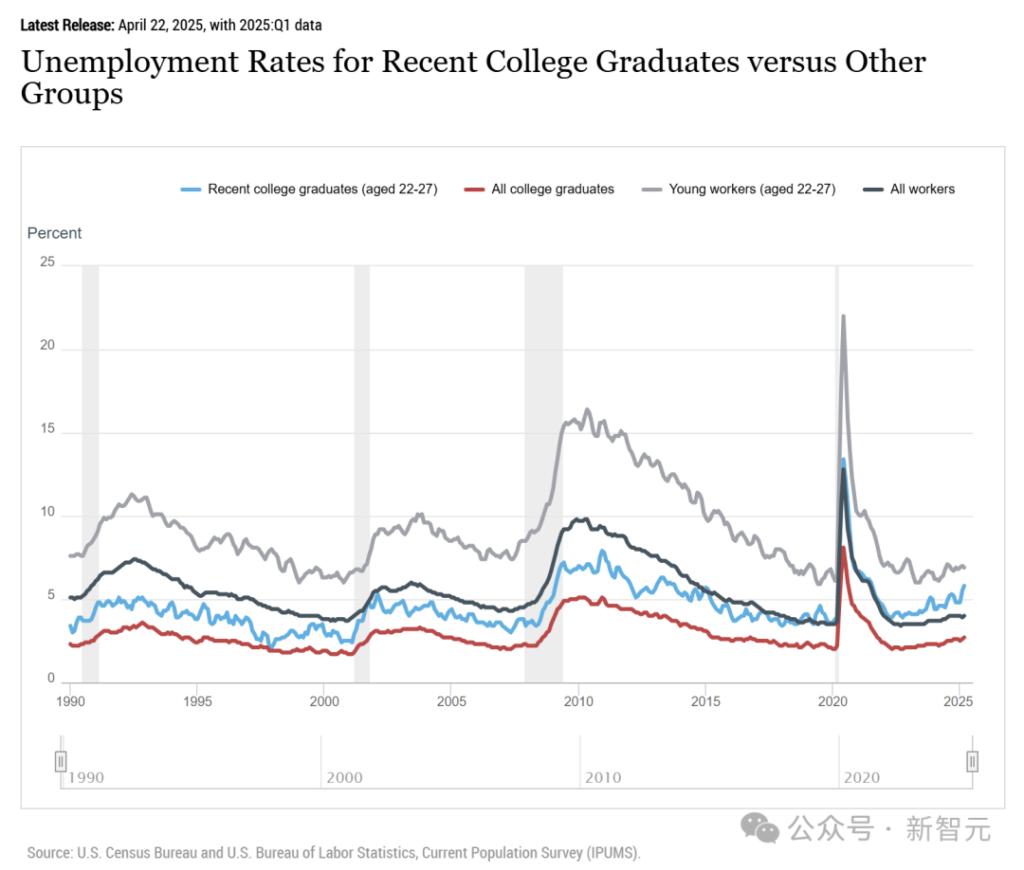
Even MBA students who have just graduated from elite programs often find it difficult to find work.
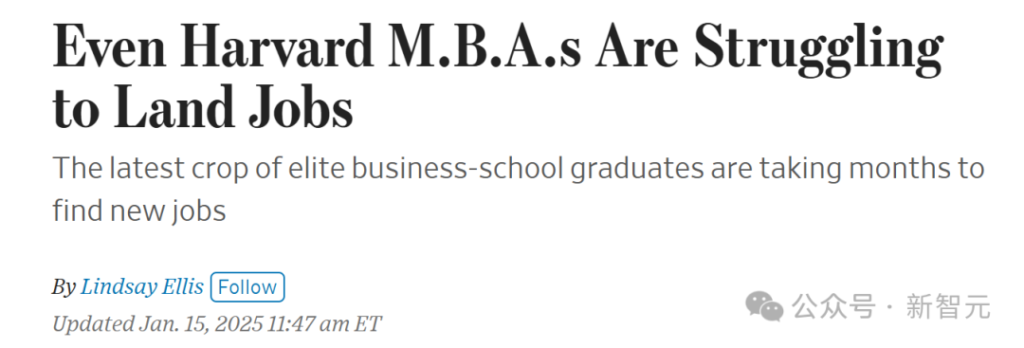
Meanwhile, the number of law school applicants is surging, which uncomfortably reminds people of how young people used to avoid employment pressure by continuing their education during the financial crisis.
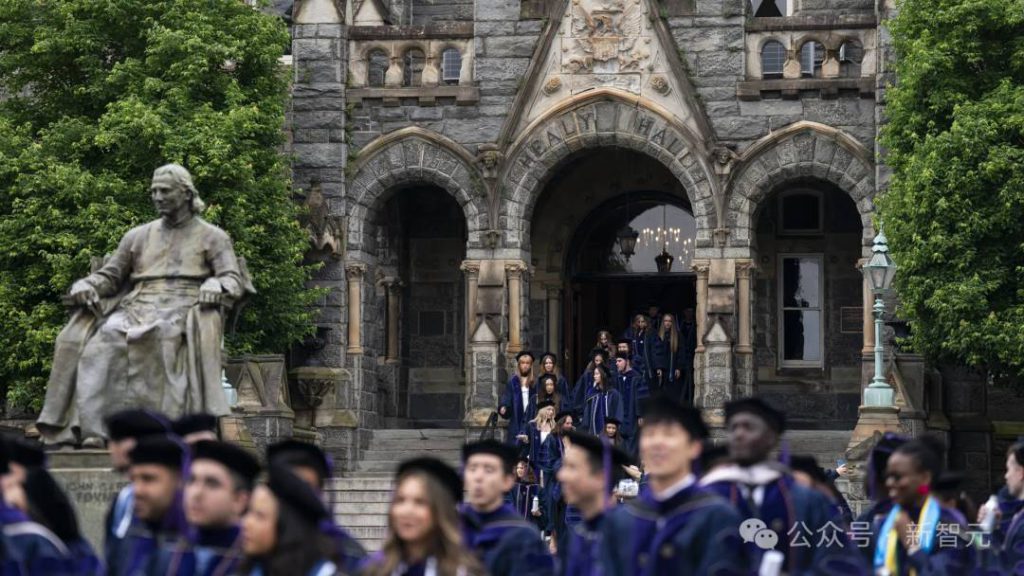
Regarding this phenomenon, The Atlantic writer Derek Thompson speculated there might be three reasons.
The first reason is that the young labor market has not recovered from the pandemic's impact, and this great recession has been ongoing for quite some time.
Harvard economist David Deming previously stated that it has become increasingly difficult for young people to find jobs, a situation that has persisted for at least a decade.
The great recession not only led to massive layoffs but also caused many employers to freeze hiring. Just as the tech boom seemed imminent, inflation resurged, leading the US Federal Reserve to raise interest rates, directly suppressing economic demand.
White-collar industries, especially the tech sector, were hit particularly hard. Software development and IT operations job vacancies have significantly decreased.
The second theory points to a deeper, more structural change: universities no longer provide labor advantages as they did 15 years ago.
According to research by the San Francisco Federal Reserve, 2010 was a turning point after which the lifetime income gap between college and high school graduates stopped expanding.
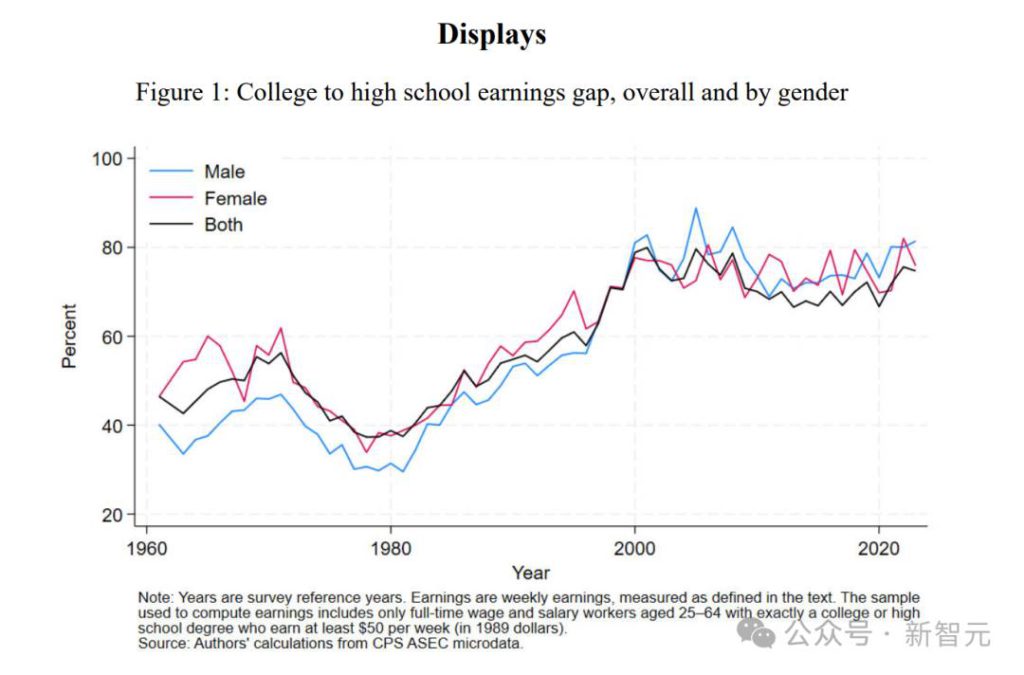
The third theory is the most frightening - the softness of the college graduate labor market might be an early sign of AI beginning to change the economy.
If considering an economic indicator - the graduate gap, which is the difference between recent college graduates' unemployment rate and the overall labor force unemployment rate - it becomes clear that things are no longer the same.
Forty years ago, young college graduates' unemployment rates were not high because they were relatively cheap labor.
But just last month, the employment gap for college graduates hit a historic low.
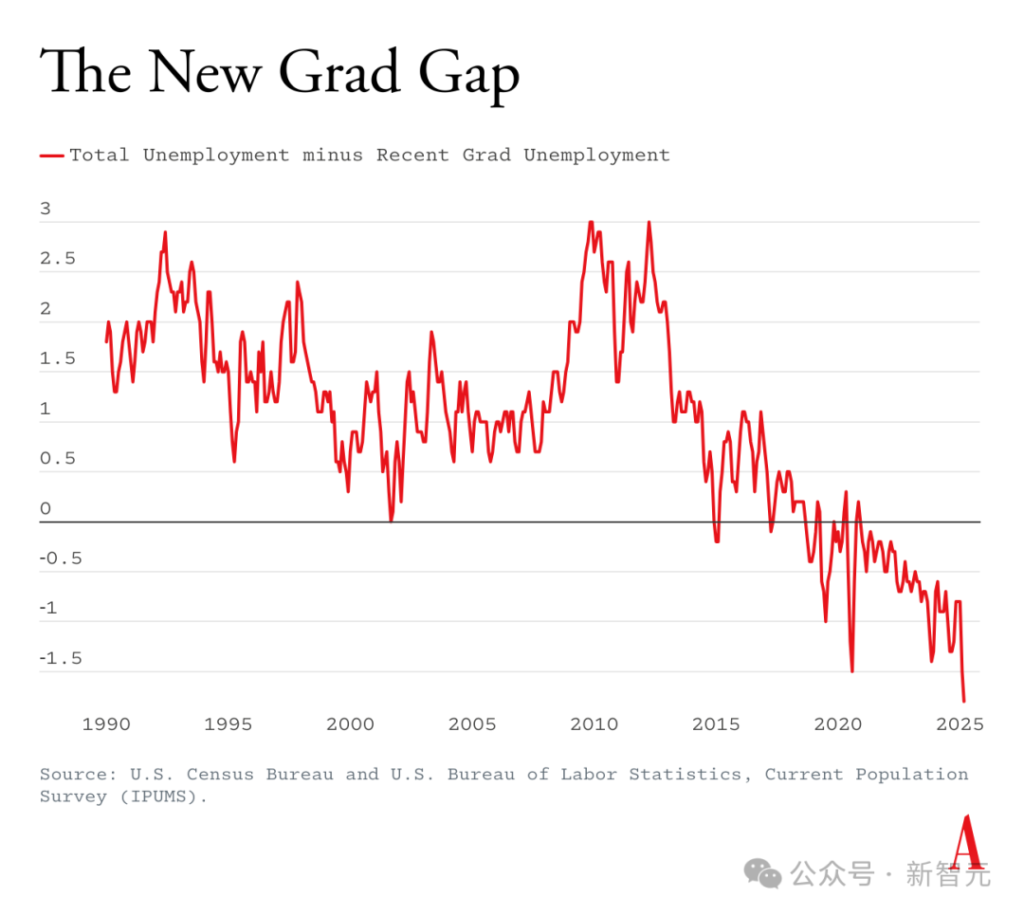
It can be said that the economic environment facing US college graduates today is worse than any month in the past 40 years.
Law firms and consulting companies are beginning to realize that 5 22-year-olds using ChatGPT can complete the work of 20 recent graduates.
Moreover, even if employers do not directly replace human employees with AI, the high infrastructure costs of AI will squeeze the share allocated to new employees.
In summary, the labor market for college graduates is showing warning signs.
It's AI's Turn to Work
In short, more and more companies are quietly removing you from your workstation.
This time, you will truly be replaced by AI - this is not speculation, but a current reality.
Thank you for your past efforts; now it's AI's turn to work.
From customer service to translation, from pricing experts to tax consultants, more companies are beginning to hire an AI that never complains.
Don't believe it? Look at the current status of the following 5 companies.
From 2024 to 2025, at least five global well-known enterprises - Klarna, UPS, Duolingo, Intuit, Cisco - have directly or indirectly laid off tens of thousands of people due to "AI being more efficient".
The reason given is "We are not replacing humans with AI, just using AI to improve human efficiency".
It sounds reasonable until you realize that human jobs have suddenly disappeared!

Klarna
Klarna, a leading buy-now-pay-later fintech company abroad, announced in 2024 layoffs of over 1,000 people, about 10% of its global workforce.
At the time, this news immediately made the Forbes headline.
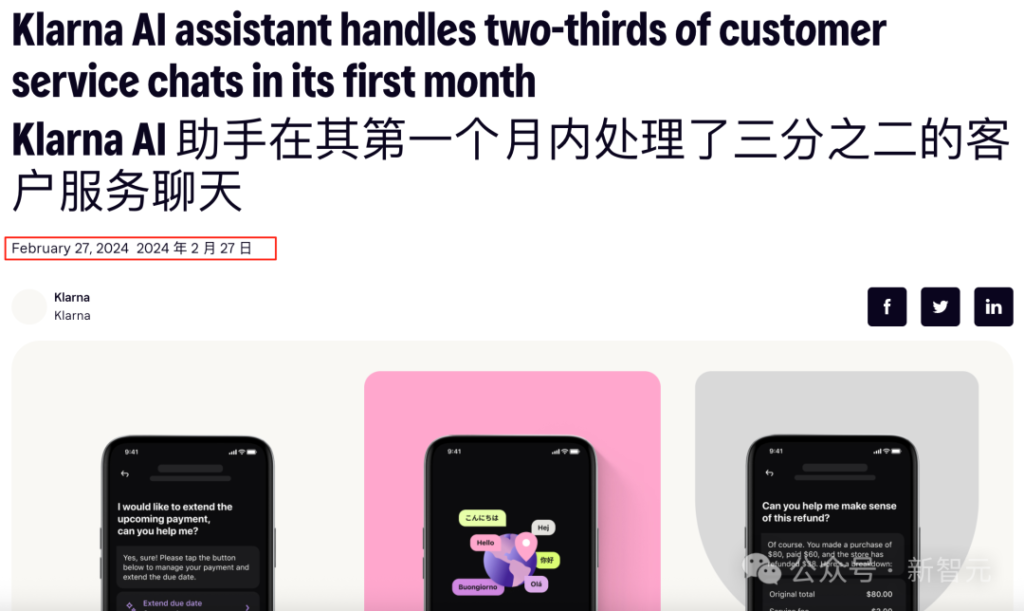
The company has heavily invested in AI to handle customer service inquiries, process transactions, and optimize operations.
Klarna has created an AI assistant equivalent to the workload of 700 full-time employees.
Klarna's CEO openly discussed how AI-driven chatbots and automated systems perform tasks previously managed by human agents, such as answering customer queries and processing refunds.
By integrating generative AI, Klarna aims to reduce operational costs while expanding its service scale, with reports suggesting AI now handles a large portion of its customer interactions.
UPS
In early 2025, United Parcel Service (UPS) announced plans to lay off 20,000 people, one of the largest layoffs in UPS's 116-year history.
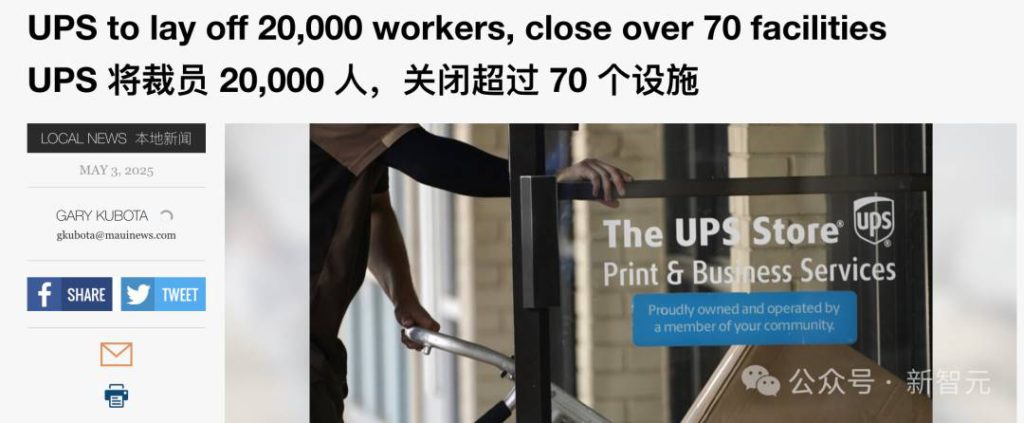
UPS CEO Carol Tomé frankly admitted that behind these layoffs is actually the deployment of AI and machine learning technologies.
Tasks that previously required human pricing experts to write sales proposals are now done by AI, with higher efficiency and lower costs.
Although UPS still claims "AI is not replacing humans", everyone can see that the company is using AI to optimize logistics routes and handle customer communications, naturally reducing the need for many employees.
In plain terms, this move is about the company saving money, with AI becoming the most convenient tool for cost reduction.








